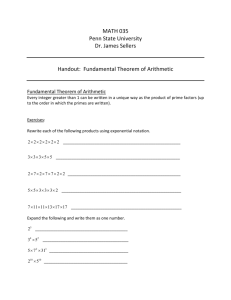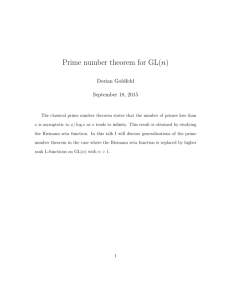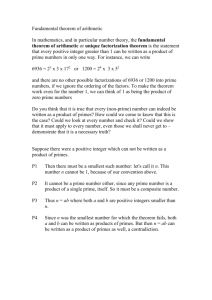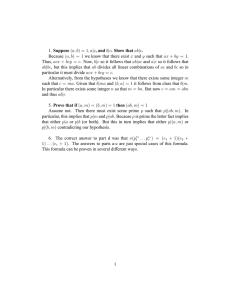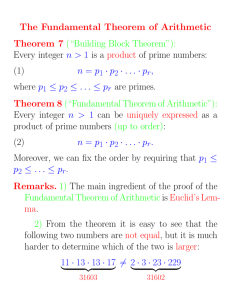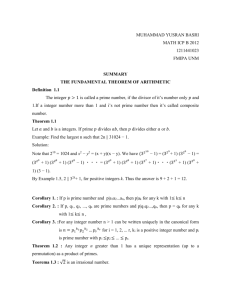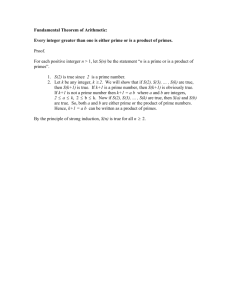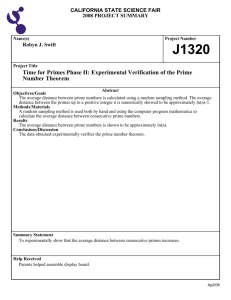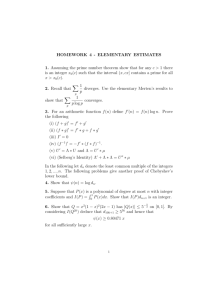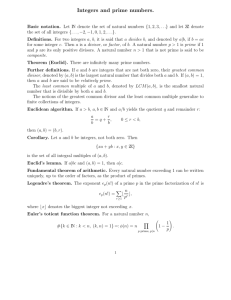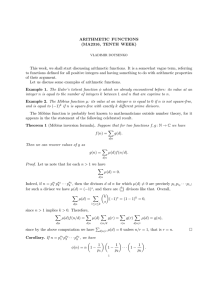NUMBER THEORY
advertisement
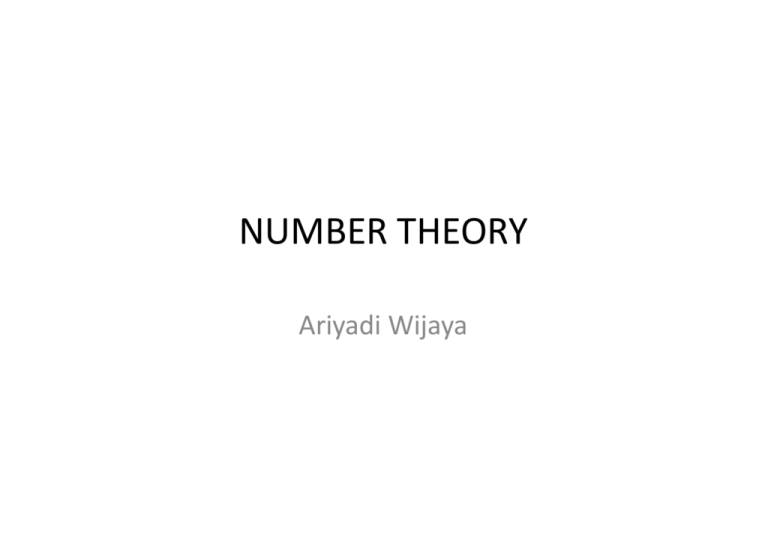
NUMBER THEORY Ariyadi Wijaya Prime Number Definition: A prime is positive integer greater than 1 that is divisible by no positive integers other than 1 and itself Definition: Positive integer greater than 1 that is not prime is called composite Prime Number Lemma: Every positive integer greater than 1 has a prime divisor. Theorem: If n is a composite number then it has a factor k so that Theorem: If n is a composite number, then n has a prime factor no greater than Theorem: If p is a prime number and p|ab then p|a or p|b The Fundamental Theorem of Arithmetic Theorem (Fundamental Theorem of Arithmetic): Every positive integer greater than 1 can be uniquely written as a product of prime. Example: 26=2.13 100=2.2.5.5 Lemma: If a, b and c are positive integers such that (a,b)=1 and a|bc, then a|c Proof: (a,b)=1 ax+by=1 acx+bcy=c Since a|acx and a|bcy, a|c • p|ab p|a or p|b
